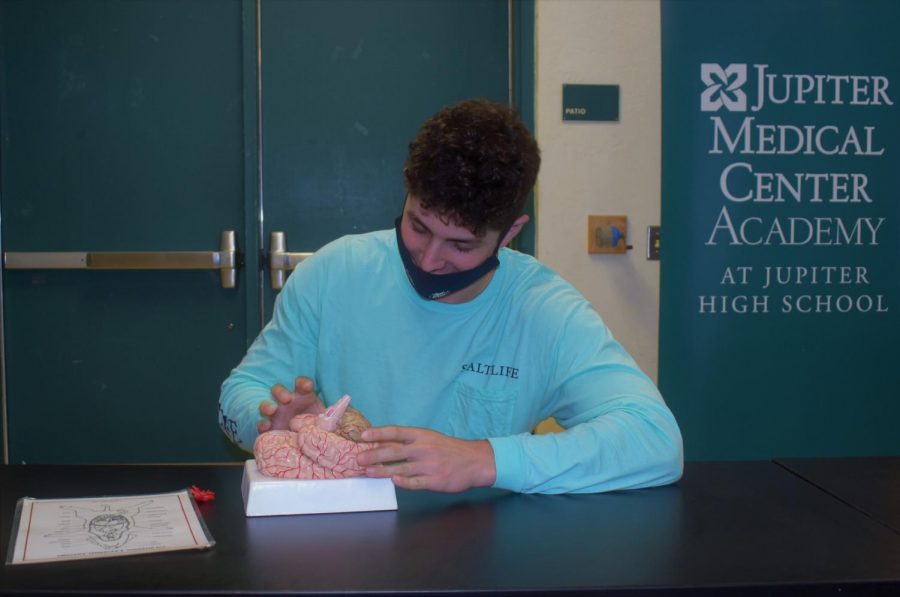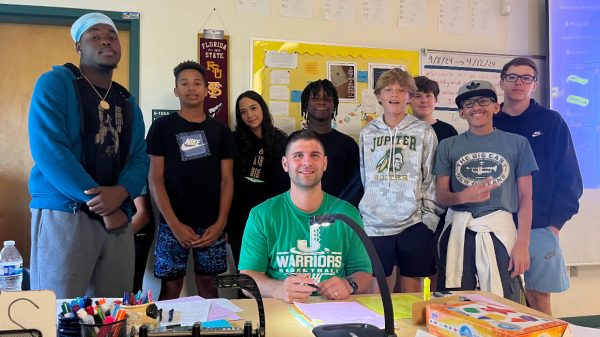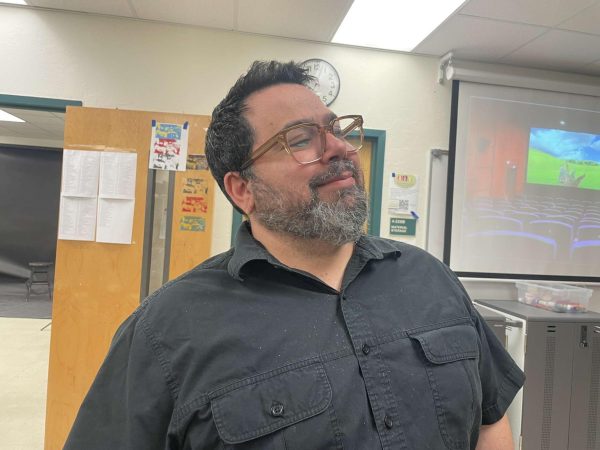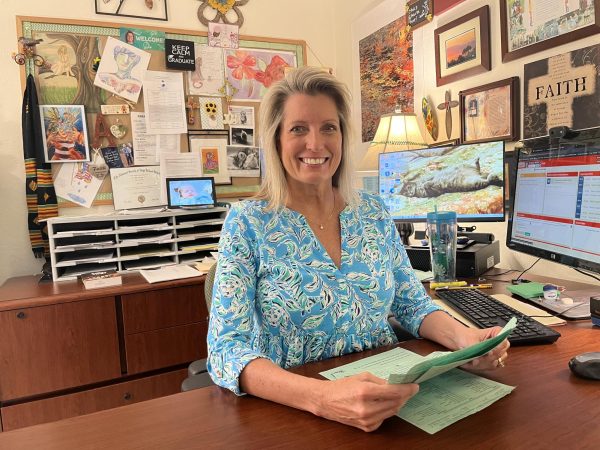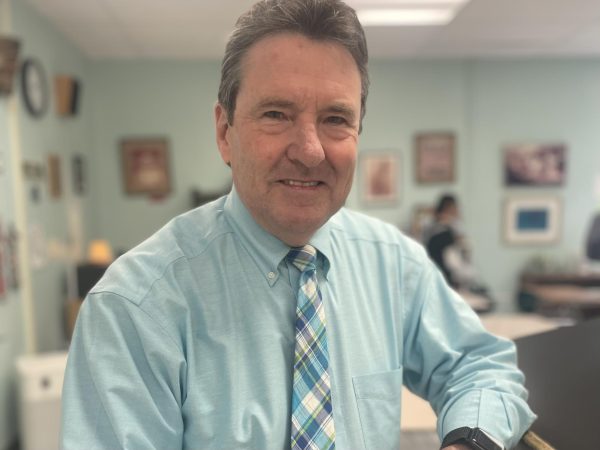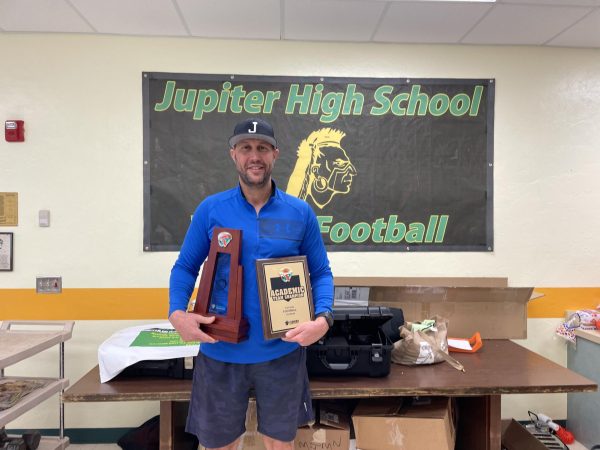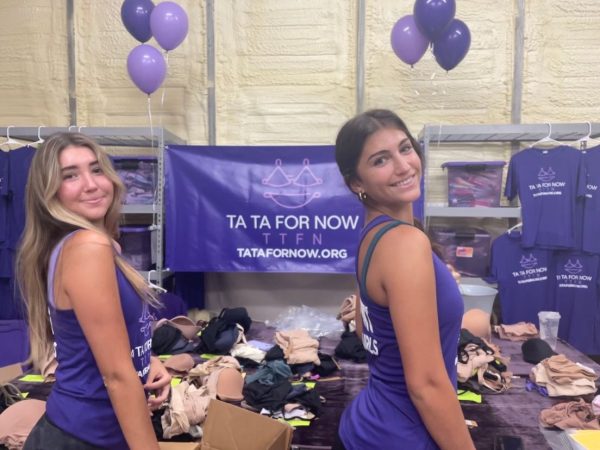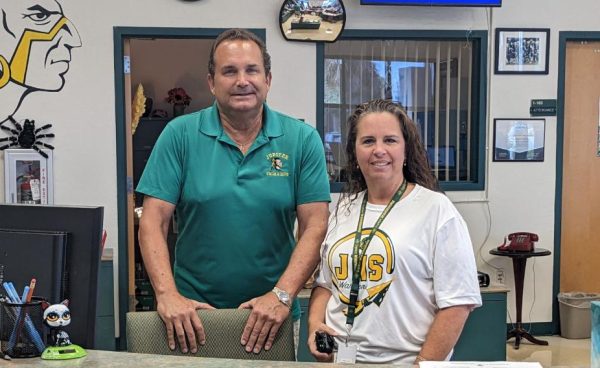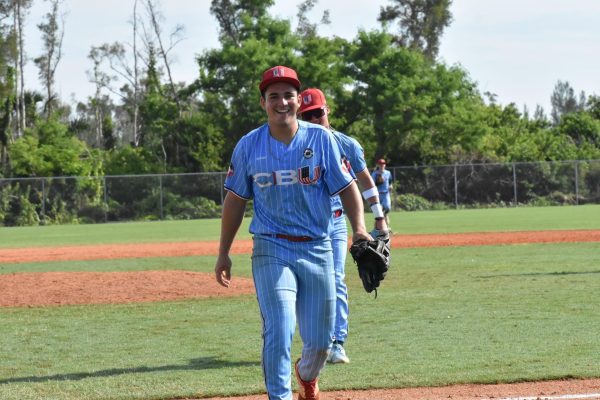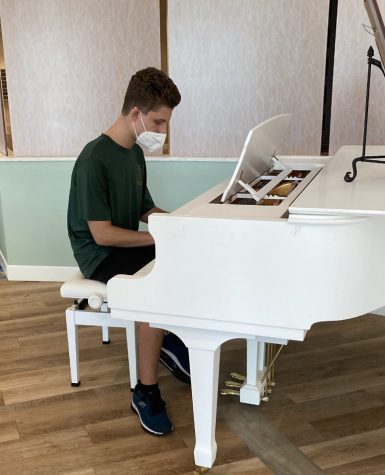JHS Medical Academy partners with Squads Abroad program
Junior students in the Jupiter Medical Center Medical Academy at Jupiter High began a new program, Squads Abroad, to simulate the hands-on, medical experience they would normally get by taking in-person hospital trips in pre-pandemic times.
“The Squads Abroad program involves mobile medical clinics and live telemedicine consultations through local teams in Honduras and is the world’s first virtual experiential-learning and volunteer program for high school student groups on an international level,” Peyton Ellis, the head of JHS Medical Academy, said.
In the program, students tune in to live Zoom lectures two days a week with medical professionals in Honduras.
“You learn so much about Honduras and their community and basically what their health care facilities are like,” Breanna Leary, a junior in the Medical Academy, said.
The program gives students the opportunity to gain real-world knowledge and to learn about the global medical community.
“We can see how health care systems exist and operate internationally, and [the program] can give us some sort of scope as to what we are privileged to have in comparison to other countries,” Kaitlyn Teachout, a junior in the Medical Academy, said.
While the program gives students a unique international perspective, it does have its drawbacks.
“Some benefits of this program are that it teaches us about other countries’ situations,” Justin Shaw, a junior in the Medical Academy, said.
Students learning remotely are facing challenges because of connectivity issues, but they are grateful for the opportunity to observe medical procedures at a time when in-person hospital visits are prohibited because of COVID-19.
“The downside of this program is that it is all virtual, and kind of hard to pay attention and understand at times…most of it has been going over PowerPoints so far,” Shaw said.
While the first part of the program was more lecture-based, the second part is more interactive.
“I feel like this program gives medical students another job option in the medical field. It reminds me of the extra credit lectures we used to have in the auditorium pre-covid,” Peyton Weiss, a junior in the Medical Academy, said. “What’s challenging is that I don’t think this program relates to my cardio technology class enough to have a whole entire semester, or however long the program will be, dedicated to taking notes and having lectures about it.”
To Weiss, the program’s initial focus was an issue. Weiss added that she feels medical students “are learning more about the social issues from the places they’ve traveled and less about the medical procedures they perform from the places they traveled.”
With COVID-19 restrictions in place, Medical Academy teachers had to be resourceful coming up with an alternative to regular class visits to Jupiter Medical Center.
“If we were not in this pandemic, students would be going to the hospital twice a week, instead of coming into the classroom every day. When they did come into the classroom, they would be expanding on their experiences at the hospital and reflecting on what they learned there,” Ellis said. “Of course, the pandemic has completely changed this curriculum and without any alternative plan in place, we have done our best to give them the most authentic medical experience possible.”
Teachers and students alike acknowledge the international program has room to grow.
“I would recommend it to maybe the sophomore and freshman medical classes,” Teachout said. “It helps grasp an understanding of how healthcare works and how it can be used to improve society. It also ties in with the sophomore and freshman medical curriculum more than the curriculum for the EKG classes do.”
Ellis and her colleagues are aware of the challenges of implementing a new program into the curriculum, especially a virtual one, but they are keeping in mind the overall benefits of the program.
“I have received mixed reviews,” Ellis said. “At the end of the day, students are not getting the hands-on, tactile experience that every medical academy student has received prior to COVID-19. That must be tough for the students to go through, but lots of them are grateful to be receiving a virtual program at the least. As well, as the program continues, it is supposed to be getting more interactive and intensive so hopefully they continue to like it even more.”
Medical Academy juniors will continue to utilize the Squads Abroad program for the next few weeks, but will not be attending the live lectures as frequently.
“Everyone has been impacted by this pandemic, and I am proud of the medical students and teachers for working hard to stay positive and healthy through it all,” Ellis said.
With the program coming to a close, students are now participating in more hands-on work.
“We’re done with the meetings with the instructors, so we are just doing a final assignment,” Leary said. The final assignment consists of choosing a medical topic and then presenting it in Spanish.
“The project is aimed for a younger audience like ages 7-10 in Honduras and we choose a topic like nutrition, hygiene, etc and my group chose nutrition and we have to translate it to spanish on google slides and present it in spanish,” Leary said.
The project, like the rest of the program, has its pros and cons.
“We have to record ourselves either from Zoom or from our phones and put it all together, and although it’s kind of hard doing it over break-out rooms, it is also kind of cool to work together and do a project like this,” Leary said.

